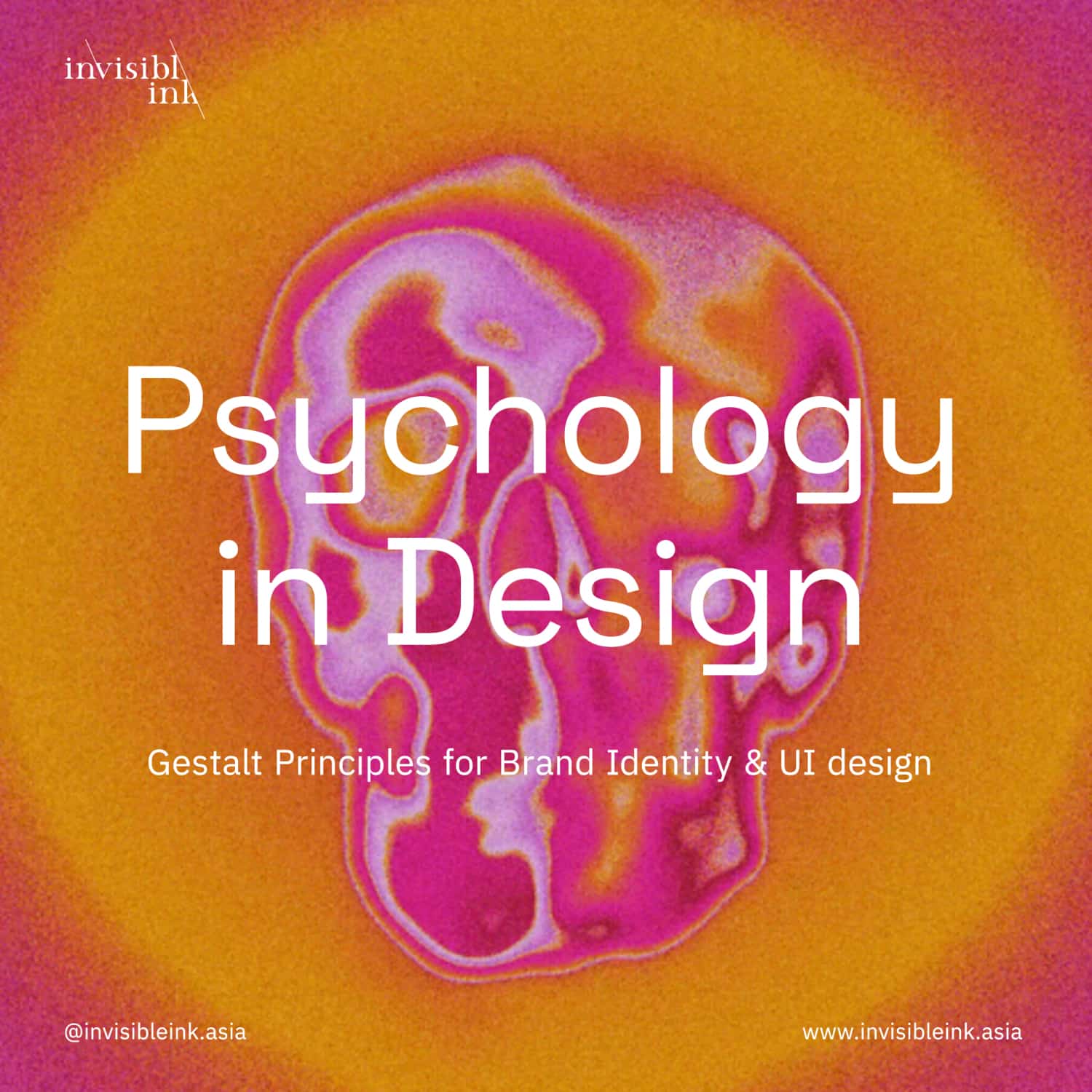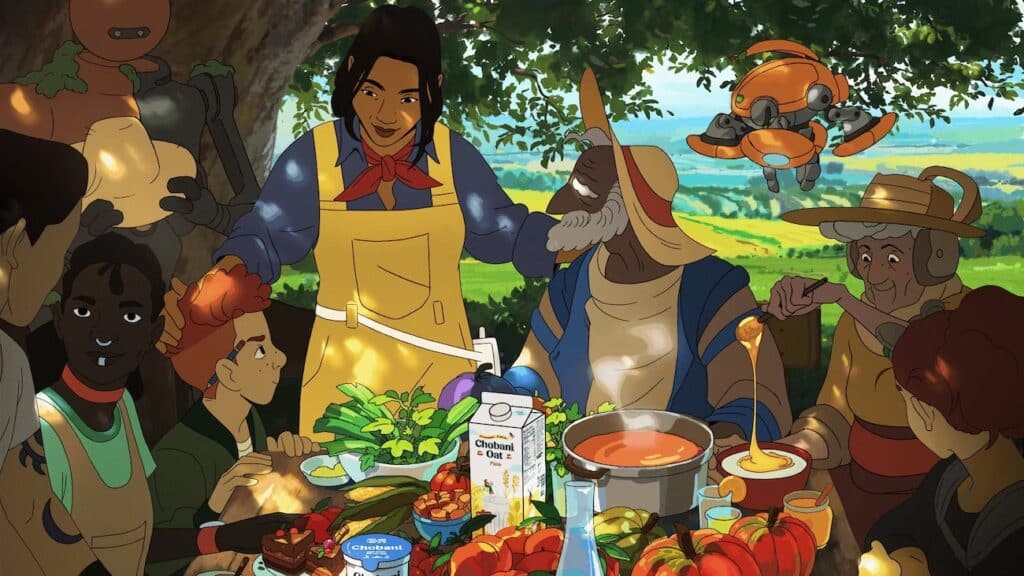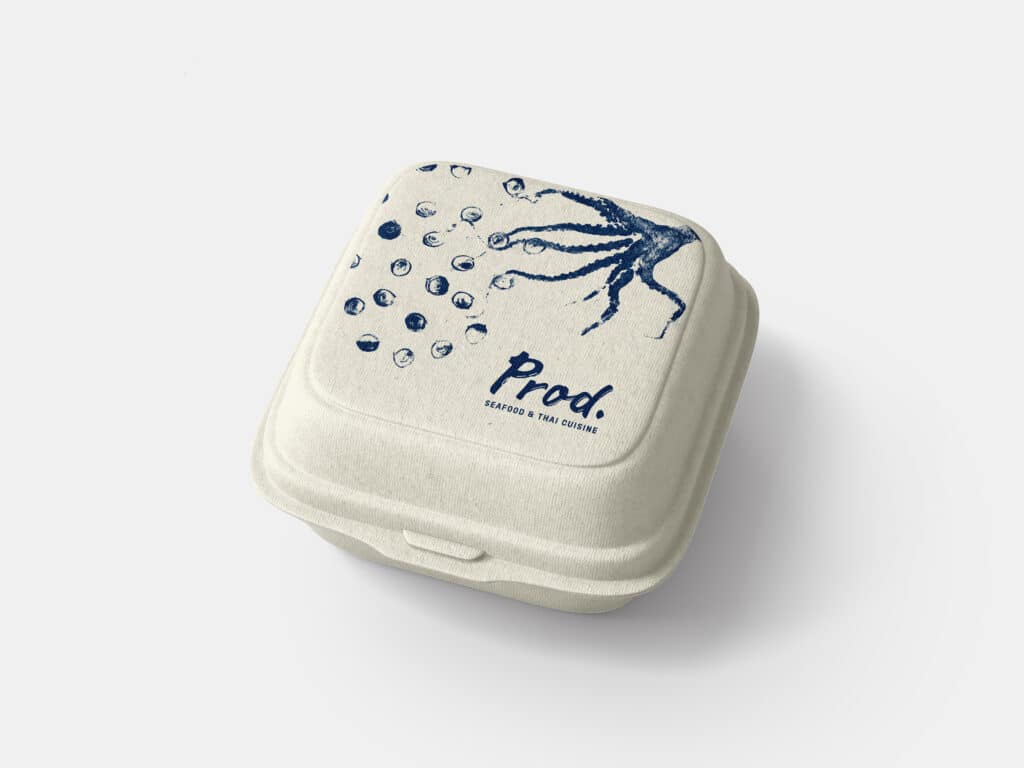
Design
Ecopunk: The Latest Design Trend & Climate Optimism
29 September 2023
5 Mins Read
In recent years, the cyberpunk aesthetic has dominated our visions of the future, characterized by neon-lit dystopias inspired by concerns about climate crises, social inequality, and overpowering artificial intelligence (think Bladerunner 2017 and the video game Cyberpunk). However, a new aesthetic has emerged, offering a glimmer of hope in the face of environmental challenges – Ecopunk. Rising alongside our collective need for a more positive outlook on the climate, Ecopunk embraces the idea of a sustainable and resilient future. This article explores the potential of Ecopunk (sometimes also called Solarpunk) aesthetics in advertising, specifically looking at Chobani’s ‘Dear Alice’ commercial as a case study.

Chobani's 'Dear Alice' Commercial
The ‘Dear Alice’ commercial by Chobani, introduced in 2021, stands out with its lush Miyazaki-inspired anime art, presenting an optimistic vision of the future. The advertisement depicts moss-covered robots, a hover school-bus, and a community actively discussing sustainable practices. This refreshing approach is a departure from the typical advertisement, often focused on exploiting desires for consumerism. Instead, ‘Dear Alice’ taps into our yearning for a sustainable future, prompting us to rethink the role of advertising and branding in shaping society’s aspirations.

To fully appreciate the impact of ‘Dear Alice,’ we must first understand the significance of Solarpunk. As a subgenre of Ecopunk, Solarpunk envisions a future where renewable energy and green technologies have reshaped society. It offers an alternative to the dark and apocalyptic narratives often associated with cyberpunk, emphasizing hope and positive transformation. By adopting Solarpunk aesthetics, advertisers can tap into this optimistic vision of the future and inspire viewers to take action toward sustainability. The commercial ends with ‘how we eat today, feeds tomorrow’ after showing scenes of a futuristic utopia where a person of color farm owner honors the land and her workers with respect, highlighting that climate consciousness and food production as well as workers rights is an interconnected system that requires the whole community.

Advertising has long been associated with creating desires for products and services, but what if its focus shifted towards fostering a desire for a sustainable future? By aligning branding identities with the values of sustainability, advertisers can leverage their influence to promote eco-consciousness. Chobani’s ‘Dear Alice’ serves as an example of how advertising can make ecological ideals desirable and inspire climate optimism that does not simply show stock images of ‘renewable energy’ but a whole working community towards climate optimism.
While Chobani’s ‘Dear Alice’ has been lauded for its positive messaging, it has not been exempt from criticism. Some viewers argue that the commercial co-opts discussions of climate justice to sell more products, raising concerns about greenwashing. Acknowledging these criticisms is vital in maintaining integrity and authenticity in advertising campaigns. Advertisers must avoid greenwashing and ensure that their commitment to sustainability goes beyond mere aesthetics.
In the case of ‘Dear Alice’, Chobani being an immigrant-founded brand it is committed to ‘making high-quality and
nutritious food accessible to more people, while elevating our communities and making the world a healthier place.’ And these values are enacted throughout their corporate organization from Chobani’s founder being a passionate advocate for refugees rights (long hiring refugees as a company, partnering with a new initiative called Unstuck in 2022 to encourage suppliers around the world to hire refugees) to using sustainable recycle-ready packaging and distributing by-products to local farmers and business people. This is why ‘Dear Alice’ is a breath of fresh air and a great example of when branding and activism can intersect authentically.

Which brings us to something we strive for at Invisible Ink: we help brands rethink their business practices and approaches that not only align better with their audiences but encourage them to challenge what changes they can implement in order to become more authentic. Through our branding workshops and collaborations, we have encouraged brands to sharpen their brands’ vision, mission and values, ultimately planning how that would translate not just messaging-wise but at an organization level as well.
An example is one of our branding projects for Prod., a new restaurant in North Pattaya. After a series of branding workshops and seeing their interest in sustainability and culinary fusion, we encouraged them to pursue a fin-to-scale theme for their brand and menu concept where the whole of the fish is used to reduce food waste and local community collaborations are prioritized.

So the next time you are tackling a design or branding brief that has to do with sustainability, we hope you might take some inspiration from Eco Punk and ‘Dear Alice’. We encourage you to challenge the brands you are working with as well as engaging with sustainability messaging in an informed and holistic manner that takes into account the process of production going beyond slapping on a tag that says ‘recyclable’.


